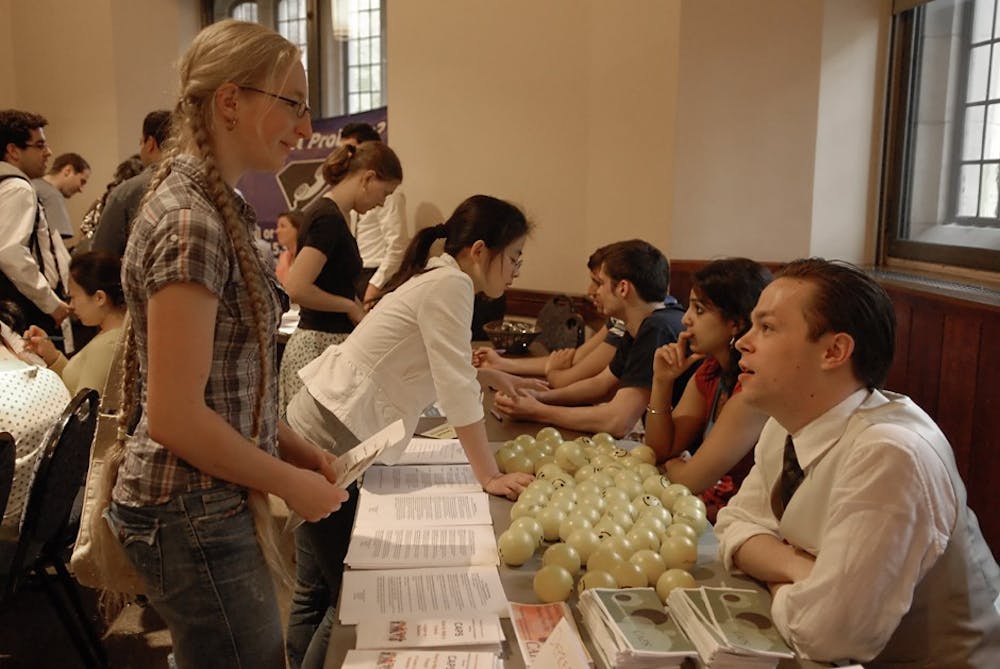The Third Annual Mental Health Camp, held on Wednesday, addressed how to deal with issues such as stress reduction, time management and depression.
Four of the co-sponsoring groups were minority-oriented, as minorities on campus are specifically working toward combatting mental health issues in their communities.
“Minority communities are no more susceptible to mental illnesses than others,” Assistant Director of Counseling and Psychological Services Meeta Kumar wrote in an e-mail. “What factors in big time is timely access to care.”
According to the Office of Minority Health, mental health resources are often under-utlized by minorities, in large part due to stigma against using them.
Karlene Burrell-McRae, director of Makuu, Penn’s black cultural center, agreed. “When you talk about a place like Penn where everybody wants to be seen as doing well ... there’s still this thinking that it is a failure to ask for help,” she said.
The pressures different minority groups face vary— Kumar emphasized there is heterogeneity even within the same minority groups.
For black students, maintaining a balance in their social community can be a challenge.
Students want to “be regular Penn students but there’s also this expectation of what it means to be a black Penn student that certainly causes anxiety,” according to Burrell-McRae.
She added that for some black students, there is the added expectation of improving the socioeconomic status of their families.
For the Asian American community, the so-called “model minority” myth can affect students’ mental health.
“It places a lot of extra pressure on students to succeed beyond what is humanly possible,” according to College junior and Asian Pacific Student Coalition Vice Chairwoman of Political Affairs Bonny Tsang.
She added that since many Asian students are second-generation, there is also added pressure to take advantage of opportunities their parents didn’t have.
For LGBT students, issues such as the coming-out process, homophobia and developing a social niche can be taxing, according to Kumar.
She emphasized that “seeking timely help is critically important for our students. Many of their concerns are ‘normal’ and developmentally appropriate and can be helped with some support and guidance.”
In addition to services like Counseling and Psychological Services and RAPline, minority resource centers act as a “sounding board” and encourage students to voice their concerns in a non-threatening way, according to Burrell-McRae.
“The constant building of relationships is priceless in helping our students get help,” she said.
Tsang agreed, saying the Pan-Asian American Community House is “amazing in terms of providing support, and helps a lot of students find community.”



